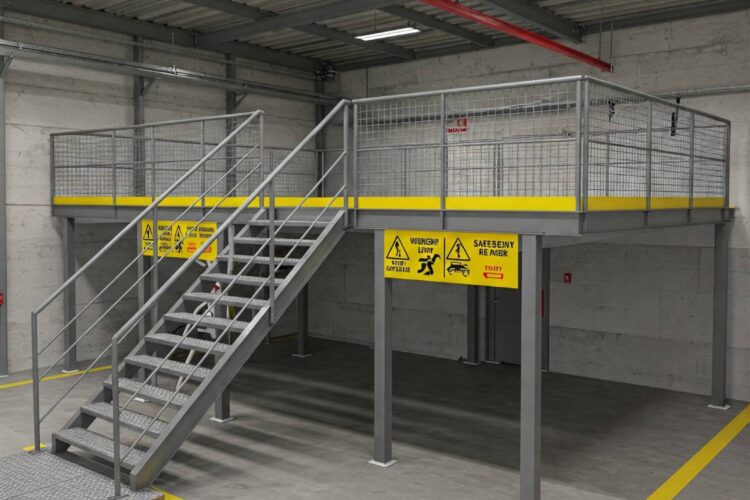
Navigating Mezzanine Floor Regulations: Maximising Space with Safety and Compliance
Mezzanine floors have become a popular solution for businesses across Essex, offering an efficient way to expand usable space without the need for costly relocations or expansions. These versatile structures allow companies to double or even triple their floor area by installing an additional level within their existing facilities. However, with these benefits comes the responsibility of understanding and adhering to mezzanine floor regulations to ensure safety, functionality, and compliance. In this blog, we’ll explore the key aspects of mezzanine floor regulations and how they impact your business.
Why Choose Mezzanine Floors?
Before delving into the regulatory details, it’s important to understand why businesses opt for mezzanine floors:
- Maximised Space Utilisation: Mezzanine floors offer an excellent way to make the most of overhead space within existing buildings. Whether used for additional storage, office space, or retail environments, these floors provide a practical solution for expanding without significant disruption to daily operations.
- Enhanced Functionality and Aesthetics: Adding a mezzanine floor not only boosts storage options but also improves the overall layout of a facility. This dual benefit creates a more inviting environment for employees and customers alike, improving workflow and productivity.
- Cost-Effective Expansion: Building a mezzanine floor is often more affordable than relocating to a new facility or expanding existing premises. It provides businesses with the extra space they need without the expense and inconvenience of moving.
- Sustainability: Mezzanine floors help businesses utilise existing structures more effectively, reducing the need for new construction. This approach contributes to sustainability by minimising the environmental impact of expansion efforts.
Understanding Mezzanine Floor Regulations
To ensure that mezzanine floors are safe, functional, and legally compliant, businesses must adhere to specific regulations. Here’s what you need to know:
- Building Regulations Compliance: Before installing a mezzanine floor, it’s crucial to comply with the Building Regulations. This involves meeting requirements related to structural safety, fire safety, ventilation, and access. Depending on the size and intended use of the mezzanine, planning permission may be required. This compliance ensures that the structure is safe for use, does not pose a risk to health, and adheres to national building standards.
- Fire Safety Regulations: Fire protection is a top priority when designing mezzanine floors. To prevent fire hazards, businesses must incorporate fire-resistant materials, install sprinkler systems, and implement effective fire alarms. It’s also necessary to maintain clear access routes to ensure safe evacuation in the event of a fire.
- Load-Bearing Capacity: The design of the mezzanine floor must accommodate the intended load, including the weight of stored materials, equipment, and personnel. It’s essential to conduct regular load assessments and inspections to ensure the structure’s safety. This includes checking for any signs of wear and tear, which could affect the floor’s load-bearing capacity.
- Guardrails and Handrails: Safety is paramount, especially when it comes to mezzanine areas where falls are a significant risk. The installation of handrails and guardrails is required to prevent accidents. These features should be designed in compliance with safety standards, ensuring that they provide adequate support and are strong enough to withstand impacts.
- Flooring and Surface Requirements: Mezzanine floors must have non-slip surfaces to prevent accidents, particularly in industrial settings. It’s important to choose materials that meet safety standards while also being durable and easy to maintain. This helps to minimise the risk of slips and falls, ensuring a safe working environment for all employees.
Customisable Solutions for Your Business
Every business has unique requirements when it comes to mezzanine floors. Our solutions are tailored to fit your specific needs, whether it’s for a warehouse in Basildon, an office in Colchester, or a retail store in Southend-on-Sea. By partnering with Mezzanine Flooring Essex, businesses can confidently expand their space while meeting all necessary regulatory requirements. Contact us today to discuss your project and learn how we can help you maximise your space safely and efficiently.



